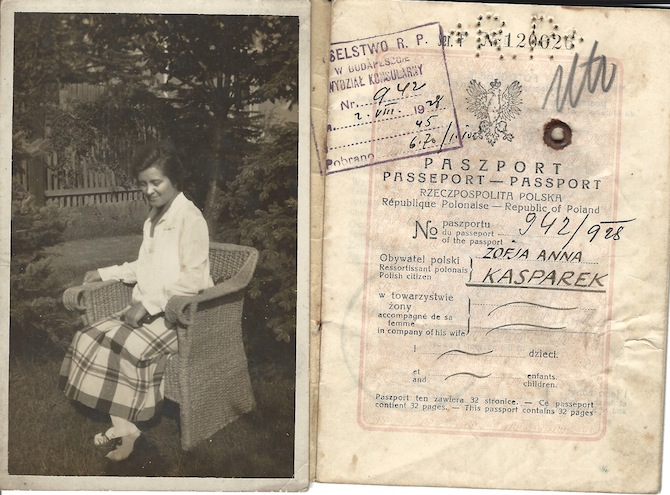
The Polish passport that started Mr. Bergstrom’s unique collection
It started with the passport of a young Polish woman named Zofja. Scott Bergstrom, author of the novel The Cruelty, discovered it in an antique store in Austria and bought it for a few euros.
“I remember thinking it was odd and a little tragic to have something so personal sell for so little,” he notes.
Today, Scott has over thirty official passports, ID cards and journals in his rare historical documents collection. Most are from Europe, dating from the 1920s to early 1950s, representing a time of unprecedented growth and innovation as well as the deadliest military conflict in history. Each document is unique with an individual story to tell. A few have family photos tucked inside and some may be the last remaining record of a life once lived.
As Maya Angelou said, “There is no greater agony than bearing an untold story inside of you.” Here Scott talks about why our stories are important and his personal quest to ensure the lives glimpsed in these documents are never forgotten.
Why this collection?
I’m fascinated by history, and more specifically, political history. All these documents represent in some way the intersection of the individual and the state. When I first started collecting these, what struck me was that no two can ever be alike. There are many Romanian passports but only one issued to this particular person; only one with this specific history of entry and exit stamps. That was critical: the idea that every document is different.
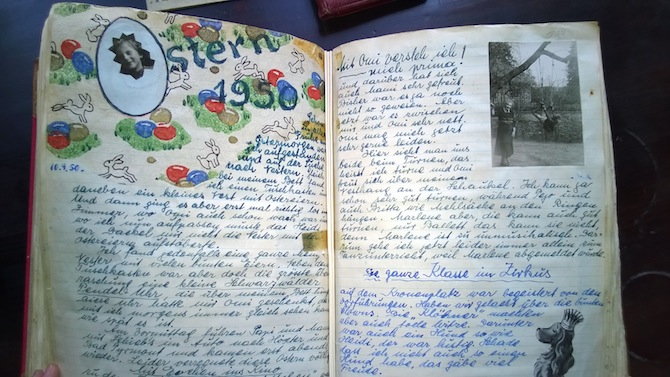
Colorful diary from Mr. Bergstrom’s collection
What about this time period interests you?
The Second World War reorganized the world, and it was also a time of great ideological struggle. Communism, capitalism, and fascism were all brought together in this great conflagration and these individuals were caught in the middle.
Where do you find the documents?
Usually in secondhand stores throughout Europe. You can pick them up for almost nothing. Some of them I’ve found tucked into old books at these stores. Very occasionally I’ll buy one off of eBay, but it’s far more fun to discover them organically in some little crate tucked into a junk shop’s back room. I feel like I’m rescuing these documents from being lost forever.
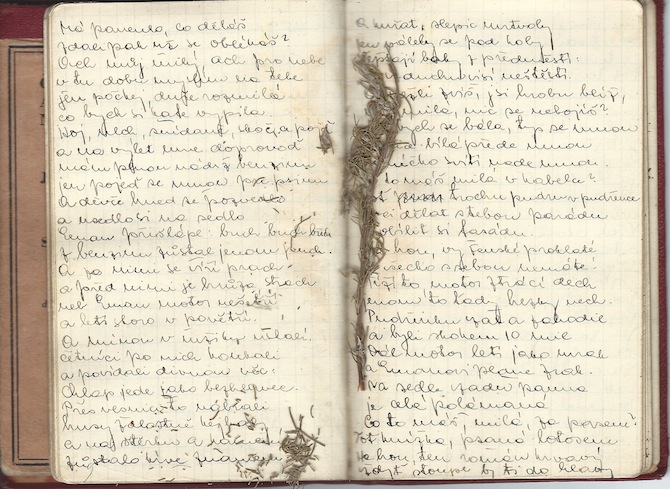
Czech student’s diary
Where is the most unusual place you’ve discovered one?
There’s a junk shop in Prague run buy a strange old man who speaks something around seven languages. His shop is more of an attic with items spread around without any organization whatsoever. There are no price tags, he makes up a price with every item and every customer. There I found a student’s diary from the 1930s written in a strange rural Czech dialect. It was mostly about the girl’s life, but it also contained recipes for herbal medicines and tinctures. There were also dried cuttings from the plants she referenced.
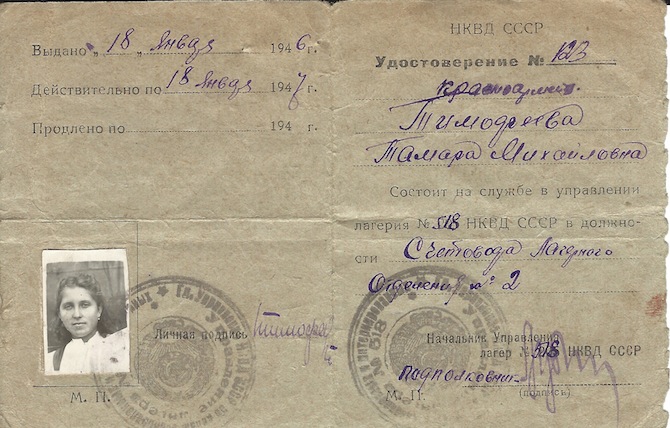
NKVD agent ID card
Which documents resonate with you most?
I have an ID card from an attractive NKVD agent—that’s the forerunner to the KGB. There’s also a Bulgarian passport featuring a stamp from a Nazi border patrol that with a prominent swastika and the German word for “Invalid” in big bold letters. But the most compelling has to be a diary of an ordinary German woman. It spans the years 1942-1957 and is a meticulous record of her experiences during the war and her life afterward. From what I’ve been able to translate, there are no extraordinary revelations in it, but it’s all heartfelt and deeply personal.

Bulgarian passport
Why do our stories matter?
Our individual stories and narratives fill out our understanding of history. In school we learn about events and ideas—but these events and ideas impose themselves on the lives of real people. In a sense, individual stories are the only kind of history we can say is truly real. The rest is just abstraction.
When I see the passport of a Bulgarian man traveling from Vienna to Bucharest to Trieste, we don’t know whether he was traveling for work, to see a lover, or to find his family. What we do know is that the journey was fraught with all sorts of political peril. What kept him awake at night? The threat of a Luftwaffe air raid? That his girlfriend or boyfriend had been arrested? Or that he might not make an important sale? In the end, we have no idea. All we can do is fill in the gaps with our imagination.
How do you plan to display the collection?
I’m working to publish all the documents online. Hopefully the public will set upon them like locusts and provide not just full translations, but any additional information. The ultimate goal would be to find the rightful owners of these documents. I’d happily give each and every one away if I knew it was going back home again.
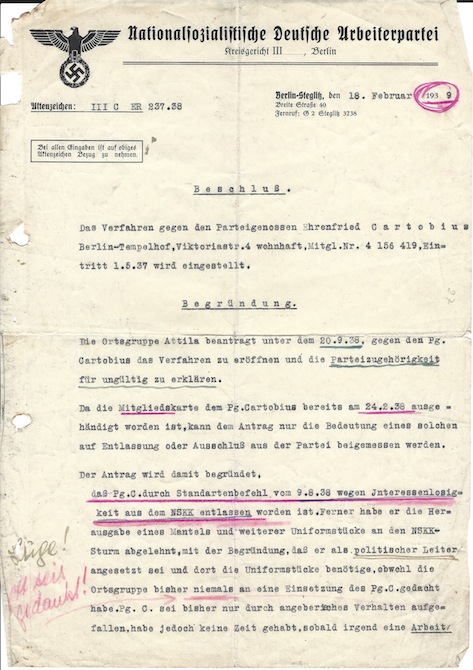
Nazi letter
Are you planning to try to contact the families?
I would love nothing more than to return these documents to the descendants of the people to whom they belonged. I feel like I’m just keeping them from harm until their rightful owners show up. This is particularly the case with the diary of the German woman. It simply must be important to someone out there.
What do you hope people take away from this collection?
The notion that history doesn’t exist in a vacuum. These ideas and long-ago events impacted individual lives. Especially in the United States, we feel removed from the vagaries of history, that history is something that happens to someone else. But here are the counterexamples, the men and women and children whose lives were upended by history.
*All photos courtesy of Scott Bergstrom from his collection
Contributed by Abby Sugrue, a travel blogger, documenting her misadventures on her site, Breakfast Included.

Jessica Festa is the editor of the travel sites Jessie on a Journey (http://jessieonajourney.com) and Epicure & Culture (http://epicureandculture.com). Along with blogging at We Blog The World, her byline has appeared in publications like Huffington Post, Gadling, Fodor’s, Travel + Escape, Matador, Viator, The Culture-Ist and many others. After getting her BA/MA in Communication from the State University of New York at Albany, she realized she wasn’t really to stop backpacking and made travel her full time job. Some of her most memorable experiences include studying abroad in Sydney, teaching English in Thailand, doing orphanage work in Ghana, hiking her way through South America and traveling solo through Europe. She has a passion for backpacking, adventure, hiking, wine and getting off the beaten path.








